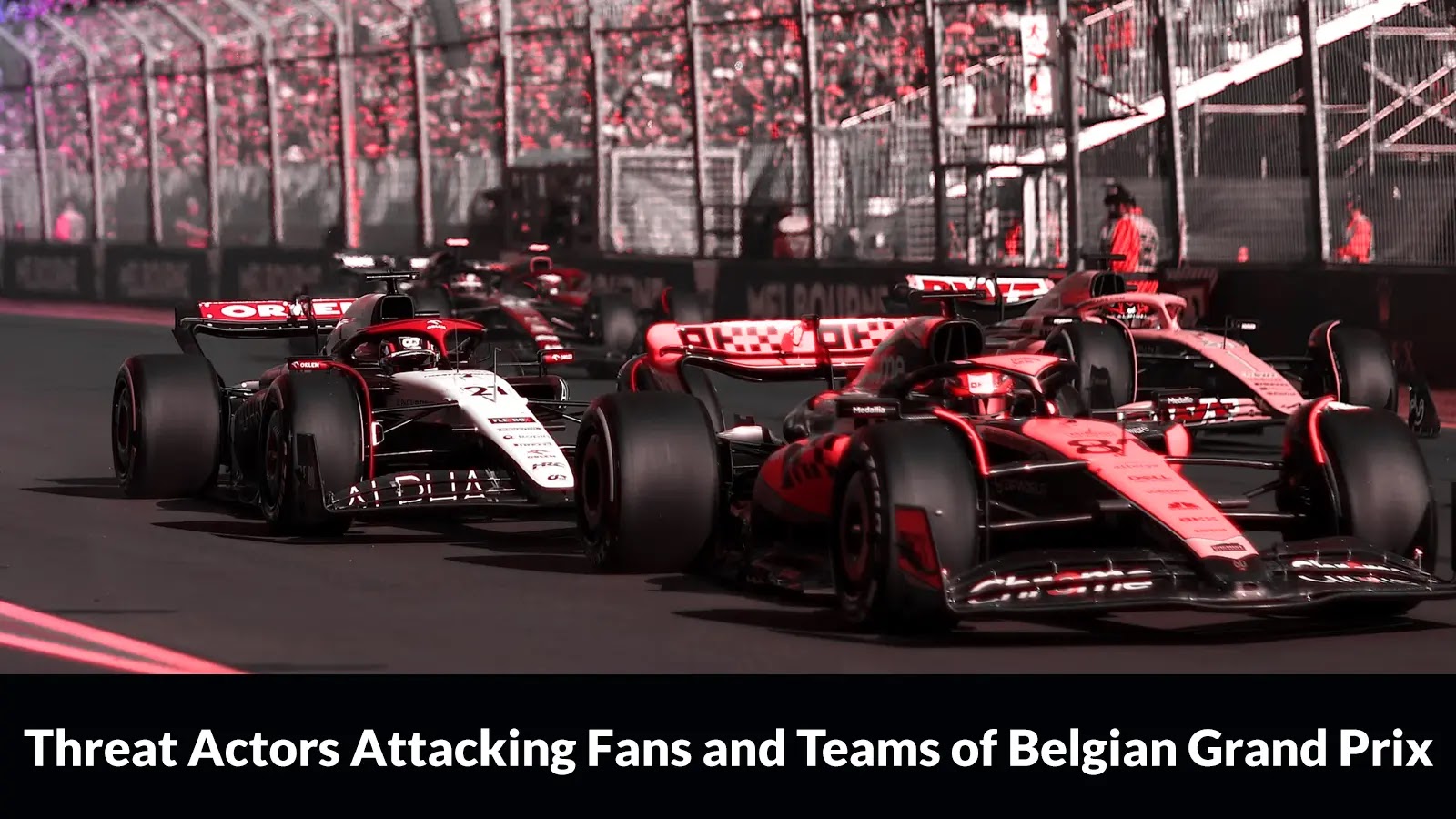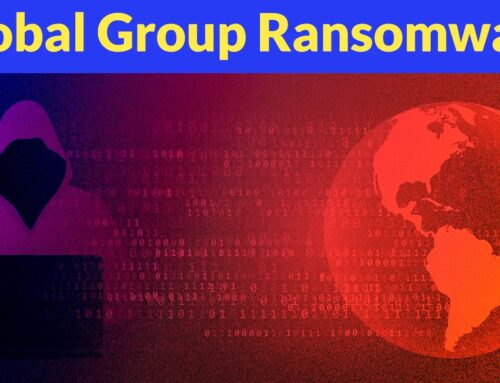
Threat Actors Attacking Fans and Teams of Belgian Grand Prix With Phishing Campaigns
Cybercriminals Target Belgian Grand Prix: A Multi-Vector Threat Analysis
The thrill of high-speed racing is often accompanied by an undercurrent of heightened security awareness, particularly in the digital realm. As fans and teams gear up for the 2025 Belgian Grand Prix at the iconic Spa-Francorchamps circuit, a significant threat has emerged. Cybercriminals have launched a sophisticated, multi-vector attack campaign, exploiting the global enthusiasm surrounding this premier Formula 1 event. This analysis delves into the tactics employed by these threat actors and provides crucial insights for safeguarding against their deceptive schemes.
The Anatomy of a Multi-Vector Attack
The attackers are demonstrating a comprehensive understanding of human psychology and digital vulnerabilities, deploying an arsenal of tactics designed to ensnare unsuspecting individuals. This isn’t a singular attack; rather, it’s a coordinated effort across various digital channels. The primary vectors identified include:
- Phishing Emails: These are the spearhead of many cyber campaigns. The emails are crafted to appear legitimate, often mimicking official Grand Prix organizers, ticketing agencies, or even merchandise vendors. They typically contain malicious links or attachments intended to steal credentials, deploy malware, or leverage social engineering for financial gain.
- Fraudulent Ticket Websites: Threat actors create convincing replica websites that mimic official ticket sales platforms. These sites are designed to defraud victims into purchasing non-existent tickets, stealing payment information, or installing malicious software when users attempt to download their “tickets.”
- Malicious Streaming Platforms: With the global reach of Formula 1, illegal streaming is a common concern. Cybercriminals exploit this by setting up fake streaming sites that promise free access to races. These platforms often serve as conduits for malware distribution, phishing for credentials, or coercing users into unwanted subscriptions.
- Counterfeit Merchandise Scams: Leveraging the demand for official Grand Prix merchandise, scammers establish fake online stores selling counterfeit goods. Beyond receiving shoddy products, victims risk exposing their financial details to malicious actors.
The overarching goal of these campaigns is financial exploitation, credential harvesting, and the potential for broader data breaches affecting both individuals and organizations associated with the event.
Targeting Fans and Teams: A Dual Threat
While the initial reports highlight attacks against fans, it’s critical to recognize the sophisticated nature of these campaigns suggests a potential for targeting teams and associated organizations as well. Access to team networks, sensitive operational data, or even financial systems could yield significant illicit gains for threat actors. Phishing attempts against team personnel could be highly tailored, exploiting inside knowledge or relationships to gain a foothold within their robust security infrastructures.
Remediation and Proactive Safeguards
Mitigating the risk posed by these sophisticated attacks requires a multi-layered approach, emphasizing both technological defenses and user education. For individuals and organizations involved with the Belgian Grand Prix:
- Verify All Communications: Always scrutinize the sender’s email address in emails, looking for subtle misspellings or unusual domains. Be wary of unsolicited emails, especially those promising exclusive deals or urgent actions. Never click on suspicious links directly. Instead, navigate to official websites by typing the URL into your browser.
- Official Sources Only: Purchase tickets and merchandise exclusively from official, verified vendors and websites. Double-check URLs to ensure they are legitimate. Look for “https://” in the URL and a padlock icon, but understand that these alone are not foolproof indicators of legitimacy.
- Strong, Unique Passwords and Multi-Factor Authentication (MFA): Implement strong, unique passwords for all online accounts, especially those related to travel, ticketing, and financial transactions. Enable MFA wherever possible; this adds an essential layer of security by requiring a second verification method beyond just a password.
- Beware of Free Streaming: Understand that legitimate, high-quality streaming services for events like the Formula 1 Grand Prix typically require subscriptions. Avoid unofficial “free” streaming sites, as they are often vectors for malware and phishing.
- Antivirus and Anti-Malware Software: Ensure all devices (laptops, smartphones) are protected with up-to-date antivirus and anti-malware software. Regularly scan your devices for threats.
- Employee Training (for Teams): Conduct regular cybersecurity awareness training for all employees, focusing on recognizing phishing attempts, social engineering tactics, and the importance of reporting suspicious activity. Simulate phishing attacks to test preparedness.
- Incident Response Plan: For organizations, have a robust incident response plan in place to quickly address and mitigate the impact of a successful cyberattack. This includes steps for containment, eradication, recovery, and post-incident analysis.
The Ongoing Battle: Vigilance is Key
The targeting of high-profile events like the Belgian Grand Prix underscores the persistent and evolving nature of cyber threats. While there isn’t a specific CVE linked to this overarching campaign, the techniques employed (phishing, fraudulent websites) are common attack vectors. These often exploit human vulnerabilities rather than direct software flaws. For example, a successful phishing attempt might leverage a deceptive link but doesn’t necessarily exploit a vulnerability like CVE-2023-23397 (a Microsoft Outlook elevation of privilege vulnerability) directly unless the attacker pivots to exploit a system once initial access is gained.
Remaining vigilant, exercising caution with online interactions, and adhering to established cybersecurity best practices are paramount. Whether you’re a devoted fan planning your trip or a team member focused on race strategy, digital security must remain a top priority to ensure the 2025 Belgian Grand Prix is memorable for all the right reasons.





